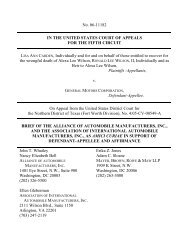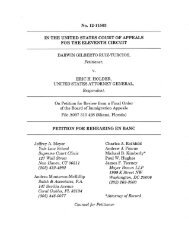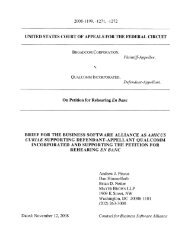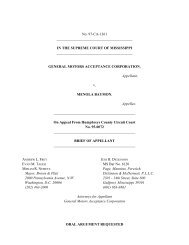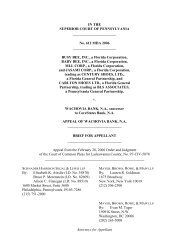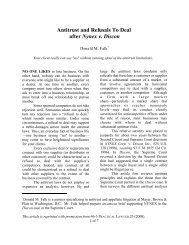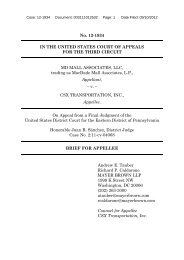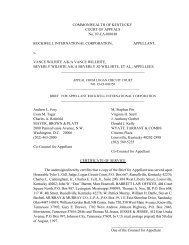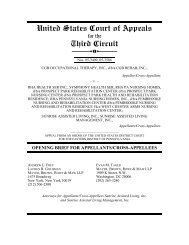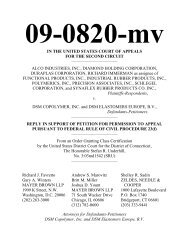No. 5-99-0830 IN THE APPELLATE COURT OF ... - Appellate.net
No. 5-99-0830 IN THE APPELLATE COURT OF ... - Appellate.net
No. 5-99-0830 IN THE APPELLATE COURT OF ... - Appellate.net
Create successful ePaper yourself
Turn your PDF publications into a flip-book with our unique Google optimized e-Paper software.
78. In fact, as a result of the jury’s verdict, State Farm stopped specifying non-OEM parts<br />
pending resolution of this appeal. As the Supreme Court held in BMW, such responsiveness<br />
militates against any conclusion that the defendant is a recalcitrant wrongdoer that will<br />
respond only to a large punitive award. 517 U.S. at 579 n.31; see also id. at 584-85. Gauged<br />
by any relevant yardstick, State Farm’s conduct lies at the bottom of the reprehensibility<br />
spectrum and is patently undeserving of a substantial punitive award, let alone the<br />
unprecedented $600 million exaction imposed by the circuit court.<br />
Third, the punitive award is not merely unnecessary and excessive, it is against<br />
public policy. Excessive punishments, such as this one, threaten to raise consumer prices,<br />
chill innovation, and deter businesses from engaging in socially advantageous conduct that<br />
risks litigation. See Transportation Ins. Co. v. Moriel, 879 S.W.2d 10, 18 (Tex. 1<strong>99</strong>4)<br />
(observing that “civil punishment can result in overdeterrence and overcompensation”). 67/<br />
This case is a textbook example: after the punitive damages award was entered, other major<br />
insurers stopped specifying non-OEM parts. Car makers are back on the road to a new<br />
monopoly in replacement parts. The resulting increase in repair costs and premiums will<br />
hurt not just State Farm policyholders, but all consumers. To make matters worse, the<br />
impact is likely to be felt most severely by lower income consumers, who can ill afford<br />
67/<br />
See also Browning-Ferris Indus., Inc. v. Kelco Disposal, Inc., 492 U.S. 257, 282<br />
(1989) (O’Connor, J., concurring in part and dissenting in part) (exemplary exactions that<br />
are greater than reasonably necessary for punishment or deterrence hurt society by<br />
discouraging socially desirable activity); Sunstein, Kahneman, & Schkade, Assessing<br />
Punitive Damages (with <strong>No</strong>tes on Cognition and Valuation in Law), 107 Yale L.J. 2071,<br />
2077 & nn.22, 23 (1<strong>99</strong>8) (observing that “a risk of extremely high awards is likely to<br />
produce excessive caution in risk-averse managers and companies”); Polinsky & Shavell,<br />
Punitive Damages: An Economic Analysis, 111 Harv. L. Rev. 869, 882-83 & n.29 (1<strong>99</strong>8).<br />
-146-



